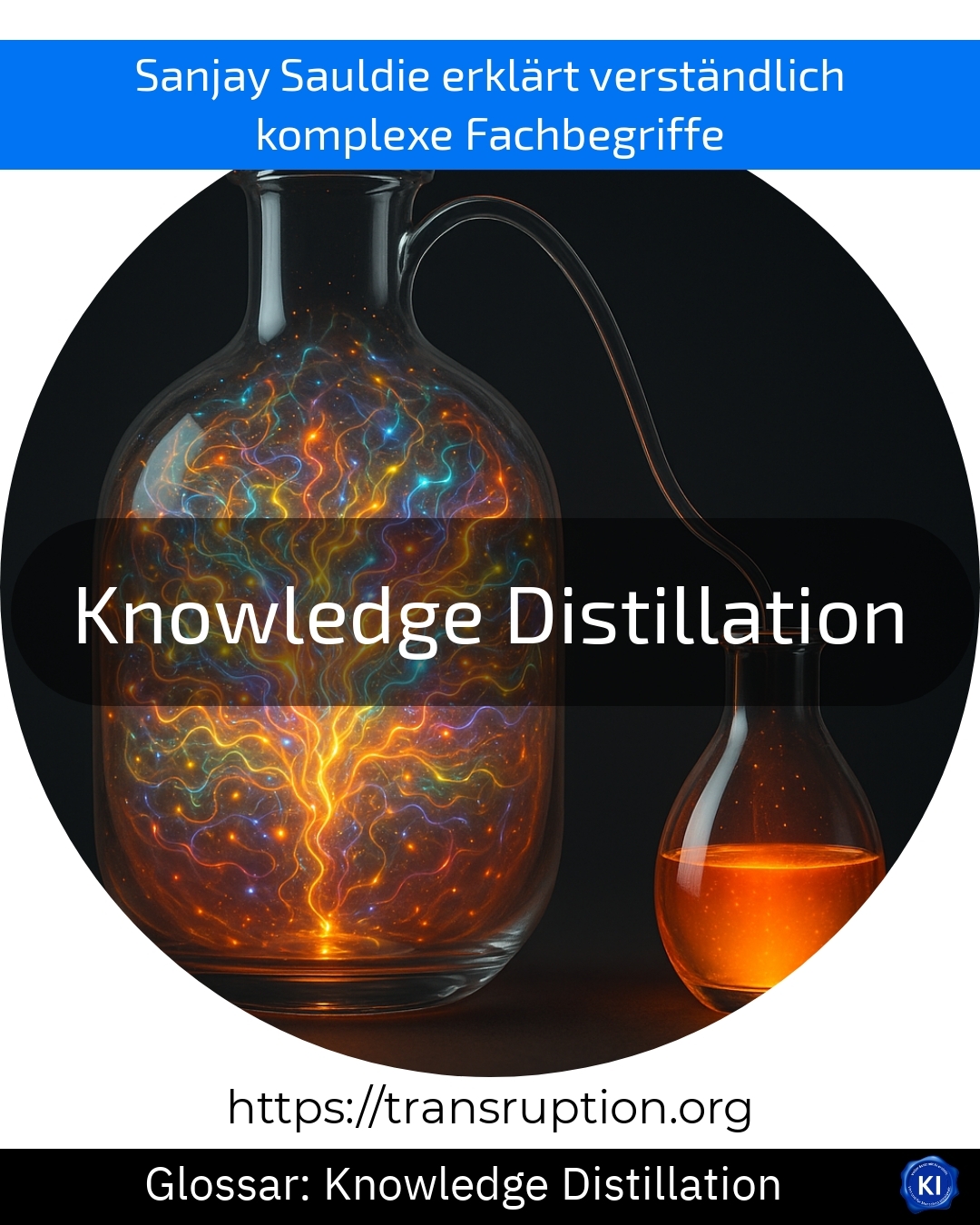Knowledge distillation is a term used in the fields of artificial intelligence, big data, smart data and digital transformation. It describes a method used to "simplify" large, powerful AI models so that they can be used more quickly and efficiently - for example on smartphones or small devices.
Imagine you have an experienced teacher (the large AI model) and a student (the smaller model). The teacher knows a lot and can solve complex tasks. With knowledge distillation, the teacher "teaches" the student how to solve these tasks as well as possible with fewer resources. The student learns to recognise and implement the most important things in a short space of time.
An illustrative example: Let's take facial recognition on a mobile phone. The original AI model is huge and requires a lot of computing power, for example on a server. Thanks to knowledge distillation, the same thing can be done on your smartphone - the model is smaller, but still reliably recognises people. This makes AI faster, more energy-efficient and cheaper in practice. This is particularly important in industry, for apps and smart devices.















